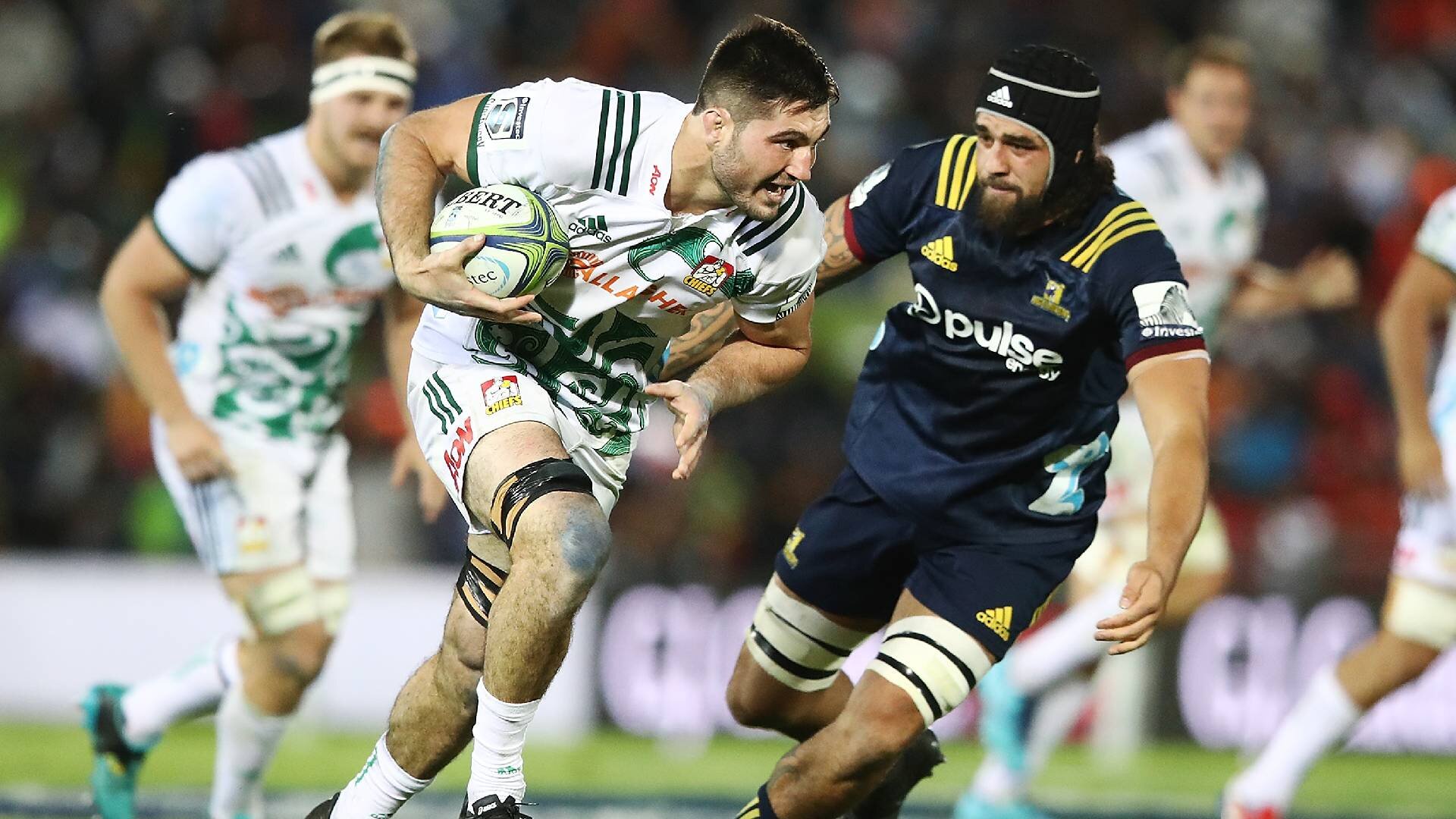Do the Chiefs and Highlanders have the most competitive Kiwi rivalry in Super Rugby?

Much has been made of the significance of inter-conference derbies since the conference system was introduced to Super Rugby by SANZAAR in 2011, and a particular emphasis has been placed on the brutality and intensity of the match-ups in the New Zealand conference.
The Highlanders and Chiefs contribute significantly to the competitiveness of the Kiwi conference, and that much will be expected of them when they face off again for the 33rd time in Dunedin on Saturday.
Since their inaugural meeting at the now-demolished Carisbrook in 1996, which finished in a 22-5 victory for the visitors, the Highlanders and Chiefs have enjoyed a long and storied history with one another.
Plenty of scintillating fixtures have taken place since then, with some of the most entertaining viewing coming in recent years, such as the Chiefs’ 41-27 season-opening win in 2013, while the Highlanders’ unbeaten run through 2015 and 2016 provided a lot of excitement.
In those matches, club greats such as Tim Nanai-Williams and Waisake Naholo shone with their sheer talent and x-factor value, while others including Aaron Smith and Damian McKenzie have been instrumental in making this clash a standout on the Super Rugby calendar.
That winning streak, which lasted from the end of 2014 through to the start of 2017, is one of many that these two sides have endured throughout their 32 previous encounters.
In fact, there have been just five one-off wins between the two clubs that weren’t followed up with a consecutive victory by the same outfit, with the last of those coming in the Highlanders’ 23-19 season-opening win in Hamilton seven seasons ago.
Since then, the Chiefs went through two long-term winning spells, the first spanning from June 2012 through to June 2014 and the second lasting from February 2017 until February this year.
Those two victorious runs sandwiched the Highlanders’ aforementioned winning run that kept the Chiefs winless against them for six matches.
These prolonged streaks of shared successes doesn’t just make for highly-entertaining clashes between these two clubs, but it makes for an incredibly competitive rivalry in Super Rugby.
After 32 matches in locations varying from the main centres of Hamilton and Dunedin through to Invercargill, Rotorua, Queenstown and Suva, the Highlanders and Chiefs have one of the most even head-to-head records in Kiwi derby history.
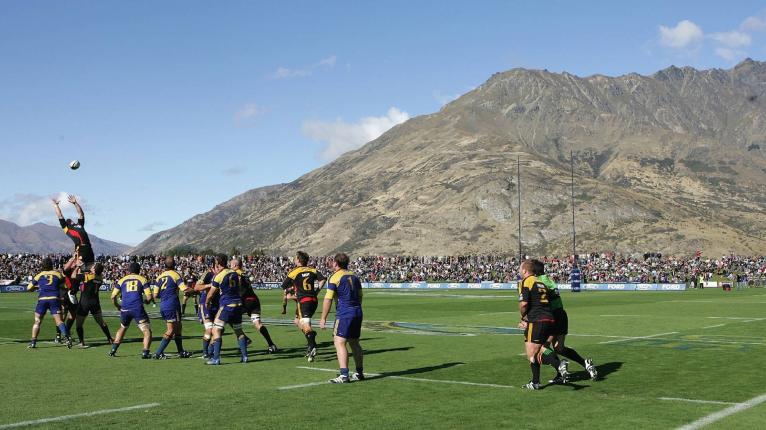
Heading into this weekend’s contest, the Chiefs have the slight historical advantage with 18 wins, edging the Highlanders’ 14 victories.
With a winning percentages of 56.25 percent versus 43.75 percent against each other, the two franchises come close to a 50-50 winning percentage split, which would make their list of encounters the most competitive in the 24-season history of New Zealand derbies in Super Rugby.
However, for all the entertainment that Highlanders v Chiefs match-ups have provided over the years, it isn’t the most competitiveness rivalry in New Zealand.
Unsurprisingly, the Crusaders have dominant winning records over all their New Zealand counterparts, which will no doubt have played a hugely significant role in them claiming their nine Super Rugby titles, nullifying the competitiveness of their rivalries from an historical head-to-head winning percentage perspective.
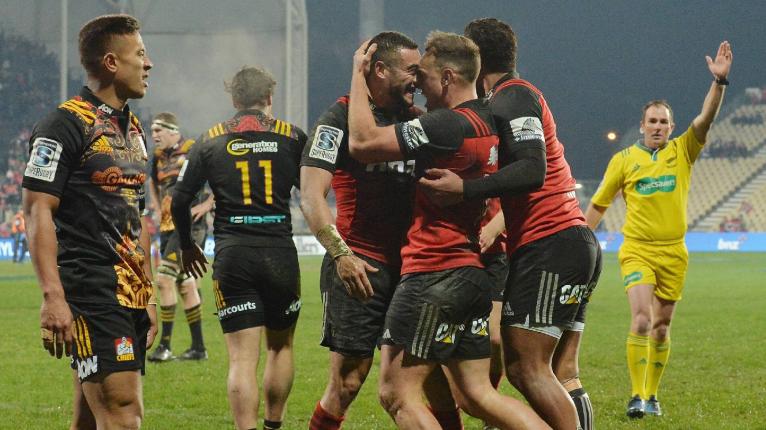
Not one of their winning records are as close as that of the Chiefs and Highlanders, while the former has sustained a close run of results with the Hurricanes over the years.
With 18 wins and two draws from 35 outings, the Hurricanes hold a slender 51.14 percent winning run over their counterparts, with the pair of stalemates from both this year and 2011 keeping the Chiefs at a winning percentage of 42.86 percent.
Take those draws out the equation though, and the Hurricanes’ win rate inflates up to 56.25 percent, as does the Chiefs’ at 43.75 percent – the exact same record that the Highlanders and Chiefs hold between each other.
There are only two New Zealand rivalries that can better the Hurricanes v Chiefs and Highlanders v Chiefs derbies, and one of those is the Hurricanes v Blues clash.
Although they’re yet to play this year in the midst of the Blues’ apparent resurgence from mediocrity, the Auckland-based side have allowed the Hurricanes to make amends for their abysmal opening to this rivalry at the dawn of Super Rugby.
The Blues won their first eight matches between the two sides from 1996 to 2003 as they went on to win three Super 12 crowns, but their well-documented performance issues since 2011 has resulted in the Wellingtonians having the upper hand recently, with John Plumtree’s men winning seven of their last eight meetings.
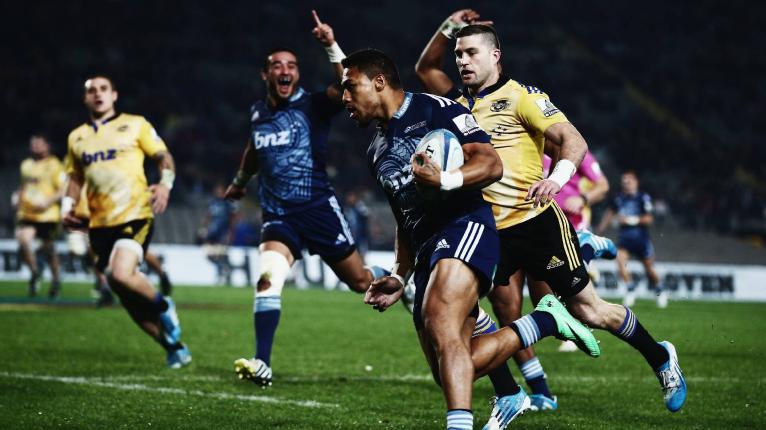
Leon MacDonald’s side haven’t tasted success against the Hurricanes since May 2014, and when both teams meet at Eden Park next week, it will be the visitors who have the slightly better record thanks to their winning percentage of 50 percent.
A 26-26 draw in 2004 leaves the Blues with a lower success rate of 46.67 percent, but exclude that result, and the Blues’ win rate inflates to 48.28 percent, as does the Hurricanes’ to 51.72 percent.
Ousting that rivalry as the most competitive in New Zealand Super Rugby, though, is the Gordon Hunter Memorial Trophy clash between the Highlanders and the Blues.
The added importance of competing for silverware in honour of the late coach who was in charge of both clubs during the late 1990s and early 2000s has clearly spurred on the Highlanders and Blues throughout their 33-match history.
Although their eight-year drought was extended by the Highlanders after re-securing the trophy for another season following their 24-12 win in Dunedin two weeks ago, it’s the Blues who have the stronger record over the course of time, but only just.
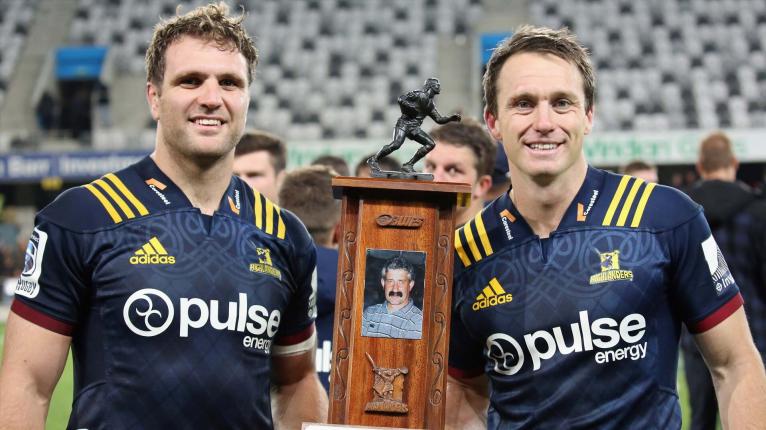
17 wins by the Blues pips the Highlanders’ 16 victories, handing them an extremely tight 51.52 percent win rate over the southerners’ 48.48 winning percentage, making their derby fixture the most competitive within New Zealand Super Rugby.
Nevertheless, while it isn’t the closest rivalry in the country, the Chiefs and Highlanders will proceed to entertain the masses this Saturday with another edition of high-octane running rugby under the roof of Forsyth Barr Stadium, adding another chapter to what has become one of the more exciting fixtures in both New Zealand rugby and Super Rugby.
New Zealand’s Super Rugby derbies from most to least competitive:
- Blues 51.52% vs Highlanders 48.48% (33 matches)
- Hurricanes 50% vs Blues 46.67% (30 matches – 1 draw) – 51.72% v 48.28% excluding draw
- Hurricanes 51.14% vs Chiefs 42.86% (35 matches – 2 draws) – 56.25% v 43.75% excluding draws
- Chiefs 56.25% vs Highlanders 43.75% (32 matches)
- Hurricanes 57.57% vs Highlanders 42.43% (33 matches)
- Crusaders 58.82% vs Chiefs 41.18% (34 matches)
- Crusaders 54.05% vs Hurricanes 32.43% (37 matches – 3 draws) – 64.71% v 35.29% excluding draws
- Chiefs 64.52% vs Blues 32.26% (31 matches – 1 draw) – 66.67% v 33.37% excluding draw
- Crusaders 66.67% vs Blues 33.33% (33 matches)
- Crusaders 66.67% vs Highlanders 30.5% (36 matches – 1 draw) – 68.57% v 31.43% excluding draw
In other news:










































































